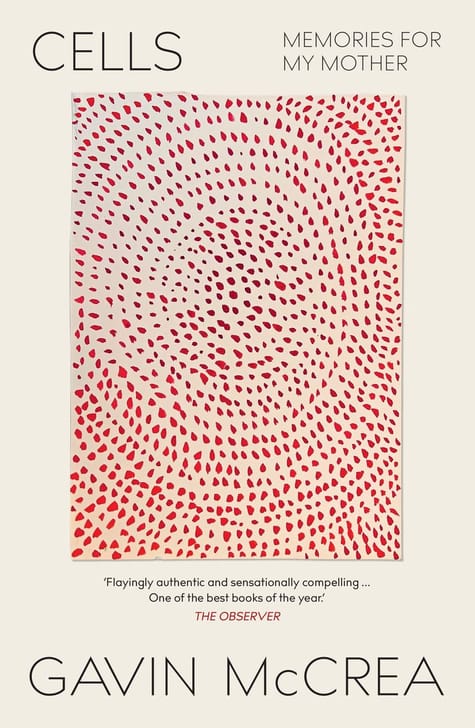Cells:
memories for my mother
Overview
From the author of Mrs Engels and The Sisters Mao, an intimate family memoir about filial love and its limits, separation, and loss.
Gavin is spending the quarantine with his eighty-year-old mother, whose mind is slowly slipping away. He has returned home to care for her and to write a novel. But all he can write about is her. In this frank and revealing memoir, he unspools an intimate story of his upbringing and early adulthood: feeling out of place as a child, homophobic bullying at school, his brother’s mental illness and drug addiction, his father’s sudden death, his own devastating diagnosis, his struggles and triumphs as a writer, and above all, his relationship with his mother. Her brightness shines a light over his childhood, but her betrayal of his teenage self leads to years of resentment and disconnection. Now, he must find a way to reconcile with her, before it is too late.
Details
- Format
- Size
- Extent
- ISBN
- RRP
- Pub date
- Rights held
- Paperback
- 198mm x 129mm
- 336 pages
- 9781914484988
- GBP£9.99
- 11 May 2023
- UK, COMMONWEALTH (EX. CAN) & EU ENGLISH
Categories
Awards
- Shortlisted for the 2023 The Polari Prize
Praise
‘Flayingly authentic and sensationally compelling … one of the best books of the year.’
‘Cells is a raw, throbbing thing; the literary equivalent of an open wound, but one that’s been cauterised by a highly skilled surgeon … one of the very best, most authentic, beautiful, and brutal depictions of a deep and abiding, albeit imperfect love between a son and his mother, not to mention the story of the making of an acutely talented writer.’
About the Author
Gavin McCrea is the author of two critically acclaimed novels, Mrs Engels (2015) and The Sisters Mao (2021), both published by Scribe. His articles have appeared in The Paris Review, The Guardian, The Irish Times, Catapult, and LitHub.

